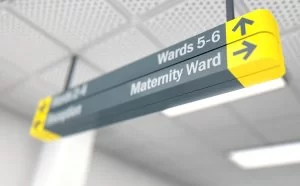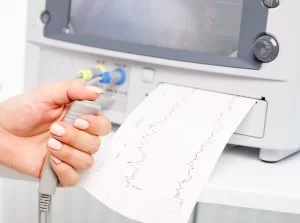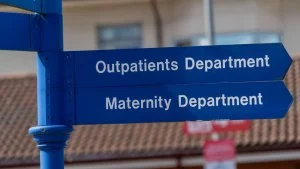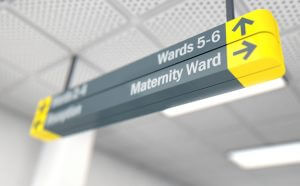Private Pregnancy Scans and Substandard Care
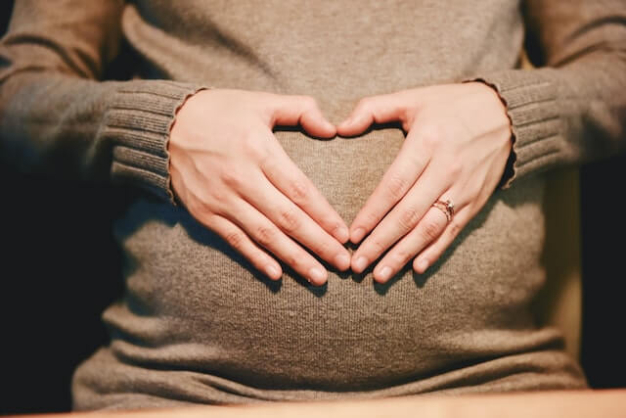
Contact
Table of Contents
In the news, it has been reported that private clinics that offer pregnancy scans to women are not meeting the relevant standards.
NHS Pregnancy Scans
During pregnancy, it is important that women have scans to ensure that the baby is growing and developing as it should. On the NHS, women usually have their first scan at between 11 weeks and 13 weeks and four days. This is an anomaly scan during the first trimester of pregnancy. It is also helpful for dating the delivery date.
Another scan usually takes place during the second trimester, which is usually between 18 and 23 weeks. At this point in time, the scan can determine the sex of the baby.
The third scan takes place in the third trimester, and this is an ultrasound scan after 28 weeks, although it can be later than this. It is often referred to as the growth scan, and it is carried out between 28 – 32 weeks of the pregnancy.
Private Pregnancy Scans
In addition to the NHS Scans, women can have private scans carried out in a private clinic, and one of the reasons for having such a scan is to see the baby in more detail. Private clinics can offer more by way of imaging than the routine NHS scans and can show the baby in far more detail.
Many women feel reassured by having a private scan, especially if they are worried about their pregnancy and they are not content with having the standard scans offered by the NHS. They may wish to know more information and want to know their baby’s gender earlier rather than waiting for the 18–23-week scan on the NHS. It may be that the NHS scan is unable to confirm the gender of the baby, especially if the positioning of the baby is not conducive to confirming this.
Women can have private scans before becoming eligible for a routine NHS ultrasound at 12 weeks pregnant. Many have experienced miscarriages and seek reassurance, so have private scans before the first-trimester scan on the NHS.
3D and 4D scans are offered in private clinics, and they can reveal footage of the baby moving around the womb in real time.
Apparently, private scans are popular gifts for grandparents who want to see their developing grandchild.
However, the Society of Radiographers published an article on 20 November 2020 stating that there were failures in private scanning clinics and this highlighted the need for professional regulation.
Poor practice across private clinics nationwide has been identified by the BBC news investigation team following an investigation carried out on boutique services that offered ‘reassurance’ scans and ‘souvenirs’ that had missed or failed to refer serious problems to the NHS.
Over 200 private scanning clinics in the UK perform 100’s of thousands of scans per year, which the BBC said should be regulated by the Care Quality Commission (CQC). The CQC meanwhile has produced guidance for expectant parents seeking a private baby scan in a private clinic.
Many of these clinics reportedly were staffed by unqualified practitioners which meant that they missed abnormalities or alternatively inaccurate information was given to the expectant parents. Unfortunately, sonography is not a regulated profession, which means that there is nothing stopping these clinics from being set up.
It has been recently reported that almost 1 in 3 private scanning clinics are failing to meet the medical watchdog’s care standards and some are not spotting serious health problems.
There is concern from medical bodies that:
‘the sector, operating from high street shops rather than hospitals, has become ‘big business’ and ‘easy money’ for sometimes unscrupulous owners, who prey on women and couples desperately seeking reassurance’.
A recent news story relating to a mother whose one-day-old daughter died in her arms after ‘reassurance scans’ failed to detect a common abnormality.
It has been reported that ‘Experts even fear unsuspecting women are shunning NHS clinics for private boutiques in the mistaken belief they will receive a ‘superior’ service’.
Another recent case related to one facility that was closed last summer after women with heavy bleeding were not directed to their local A & E department, and staff apparently incorrectly told clients they had miscarried, or misidentified babies as having the wrong gender.
It has also been reported that:
‘of the 91 clinics operating in November for which inspection reports were available from regulator, the Care Quality Commission (CQC), 25 ‘required improvements’ and one was rated ‘inadequate‘.
These clinics which are effectively substandard and comprise of 29% of all those for which an inspection report was available, can continue operating as long as they make changes.
The CQC has identified the following areas of concern relating to these private clinics:
- staff training,
- consent policies
- procedures for escalating abnormal findings’
There were 153 clinics registered with the CQC as of the end of November 2022 and 31 of those were waiting to be inspected, and reports were unavailable for others. Apparently, 62 were good and only 3 were outstanding.
It is clear that expectant parents should be fully informed before embarking on reliance on scans from private clinics. They should be clear in what can be achieved from such scans privately and they should research the private clinic that they are going to attend before they decide to do so. Information about who will be carrying out the scan and what information is available after the scan is essential. To be able to ask questions about any abnormalities on the scan and what advice and assistance are available is essential. Knowing that the sonographer is experienced to be able to spot abnormalities and refer the parents to the NHS should this be necessary is key.
A scan should not just be about gender reveal, it should be informative and action should be taken by the sonographer or the clinic staff if the scan shows an anomaly and parents must be aware of this.
Share this article
Speak to us about birth injuries claims
Call us 020 7485 8811
Email us Send us an email and we’ll get back to you
Birth Injury News & InsightsVIEW ALL
- 19.9.2024
Report highlights failings in maternity care
The Care Quality Commission (CQC) has recently carried out a national review of 131 maternity inspections between 2022 and 2024, finding that failures...
Read more - 31.8.2023
Hyponatraemia – Symptoms, Causes & Negligence
What is hyponatraemia? Hyponatraemia is a condition where sodium levels fall below a certain level, which can be dangerous. All...
Read more - 21.9.2022
Are maternity services safe? – Part 2
In April last year I wrote a piece about government setting up a taskforce to look into why there are...
Read more - 8.9.2022
Poor interpretation of CTG can result in stillbirth...
Poor interpretation of a Cardiotocograph, more commonly known as a CTG, is a leading cause of stillbirth and brain injuries...
Read more - 29.6.2022
Nottingham Maternity: Donna Ockenden to Chair Independent Inquiry
An interim report on the state of maternity services at Nottingham University Hospitals NHS Trust has just been released. However,...
Read more - 23.2.2022
Women from ethnic minorities experience worse maternity care
It has been reported today that the government has set up a new task force to look into why there...
Read more - 17.11.2021
NICE revises guidelines on Induced labour
Most babies are born naturally at around 40 weeks gestation. However, some pregnancies continue for longer. According to data from the...
Read more - 23.6.2021
Impacted Fetal Head During Labour
According to the World Health Organisation, labour is considered obstructed when the fetus cannot progress along the birth canal, despite...
Read more - 6.11.2020
Review of poor maternity care at Basildon Hospital
At Osbornes our specialist medical negligence solicitors represent a number of women who have been affected by poor maternity care...
Read more - 13.10.2020
Parental Bereavement Leave & Pay
What is Parental Bereavement Leave and Pay? Parental Bereavement Leave and Pay is something that many parents will not be...
Read more - 24.7.2020
Three-Year-Old Takes First Steps Against the Odds
A three-year-old girl with cerebral palsy, who doctors believed would never walk, took her first steps on the first day...
Read more - 4.10.2017
Sodium Valproate Claims
Link found between Sodium Valproate and abnormalities in newborn babies Sodium Valproate, a powerful epilepsy drug prescribed in the UK...
Read more - 20.10.2014
Doppler scan could prevent half of stillbirths
Doppler scans could prevent as many as 2000 stillbirths per year The press has reported that as many as half of...
Read more





